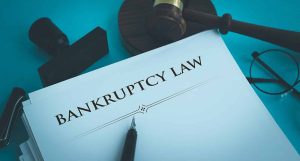 If you’re struggling with debt and creditor harassment, bankruptcy can give you a fresh start. Talk to an attorney about your options and what type of bankruptcy is best for you.
If you’re struggling with debt and creditor harassment, bankruptcy can give you a fresh start. Talk to an attorney about your options and what type of bankruptcy is best for you.
Chapter 13 Bankruptcy is a form of reorganization that allows debtors to reduce or eliminate their credit card, medical and other unsecured debts over a period of time. While the length of the plan can vary, most plans last three to five years.
The Chapter 13 process can be complicated and can lead to many problems, so it’s important to work with an experienced lawyer. They will know the ins and outs of the law, including how to prevent certain types of mistakes that can lead to your case being dismissed. Check out https://www.phoenixfamilylawyers.net/chapter-13-bankruptcy-attorney/ for more information about chapter 13 process.
Depending on your situation, you may be eligible for a “hardship discharge” after filing for bankruptcy. This is a good option if you’ve suffered an injury or illness that prevents you from earning sufficient income to make your regular monthly payments on your debts.
A hardship discharge is different from a chapter 7 “fresh start” bankruptcy, in that it does not eliminate your debts, but simply provides you with protection from creditor harassment. However, a hardship discharge can be more difficult to obtain than a chapter 13 bankruptcy.
Your eligibility for Chapter 13 bankruptcy depends on your household’s income, assets and expenses. Your attorney will help you determine if you qualify for Chapter 13 and prepare the paperwork necessary to file.
You’ll need to provide a budget and a repayment plan that is submitted to the court for approval. This plan should include a percentage of your gross income that will go towards paying your creditors.
The amount of money you can afford to pay each month will also be a factor in your approval. Your lawyer will recommend a payment schedule that will be affordable to you while still keeping your debts under control.
Once the plan is approved, you’ll need to pay your creditors on time each month. Your payments should be based on your current monthly income, which includes both your regular monthly living expenses and any other sources of income.
If you’re having trouble making ends meet, contact a Phoenix bankruptcy lawyer to discuss your debt and financial situation. A qualified bankruptcy lawyer can help you create a repayment plan that will get your debt under control while still allowing you to live a normal life.
A Phoenix bankruptcy lawyer will also help you determine if you can qualify for a chapter 13 bankruptcy. If you can’t, your attorney will suggest other ways to resolve your financial issues.
Your attorney can also help you find debt relief alternatives, such as a debt management plan through a credit counseling agency. If you’re considering filing for bankruptcy, contact an attorney today to get a free consultation and learn more about the benefits of filing for bankruptcy.
For many people, bankruptcy is the answer to their financial problems. With the right lawyer, you can get a fresh start and begin rebuilding your credit score.
